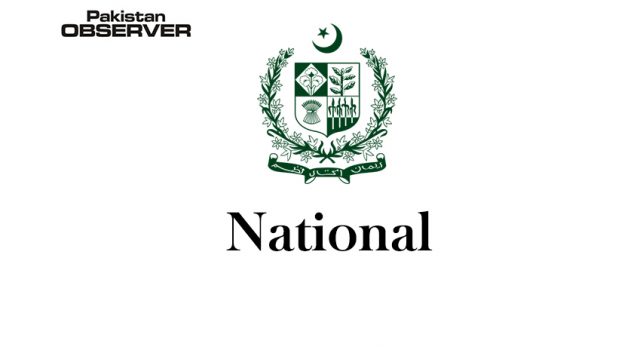Our Correspondent Bahawalpur
On the occasion of the birthday of Allama Muhammad Iqbal, the poet of the East, a seminar was organized by the Department of Iqbaliat and the Department of Persian at Ghulam Muhammad Ghotvi Hall.
The seminar was presided over by Vice Chancellor Engr. Prof. Dr. Athar Mahboob while the guest speaker was Brig. (Retd). Dr. Waheed uZ Zaman Tariq, Masood Sabir, Registrar Prof. Dr. Moazzam Jameel, Prof. Dr. Qudratullah Shehzad, Riaz-ul-Haq Bhatti and other teachers, and a large number of students participated.
Guest Speaker Brig. (Retd) Dr. Waheed ul Zaman Tariq said that Bahawalpur has been a scholarly and literary center and Allama Muhammad Iqbal called Bahawalpur as Baghdad-ul-Jadeed.
Allama Muhammad Iqbal’s father Sheikh Noor Muhammad was a leaned man. Allama Muhammad Iqbal, at the behest of his father, wrote the mysteries and secrets of the self and revealed the philosophy of the self.
The basic philosophy of the self is struggle, which means research, creation, observation and wisdom and insight. Syed Tabish Alwari said that Allama Muhammad Iqbal was a very versatile personality.
He was a scholar, philosopher, researcher, lawyer, politician, writer, thinker, critic, teacher and leader. He not only presented the idea of Pakistan but also brought Quaid-e-Azam back to India from England to put it into practice.
Dr. Ismat Durrani, President, Department of Persian, while describing the relations between the State of Bahawalpur.
She said that Allama Muhammad Iqbal poem Darbar Bahawalpur was published in 1903 and Allama Muhammad Iqbal visited Bahawalpur in 1927 at the invitation of Nawab Sir Sadiq Muhammad Khan Abbasi. He also worked as a legal advisor in Bahawalpur.
Allama Muhammad Iqbal also visited Bahawalpur in March 1930 and December 1930 with a delegation of Anjuman-e-Hamaat-e-Islam.
His last meeting with Nawab Sir Sadiq Muhammad Khan Abbasi was in 1936 at Lahore.
Dr. Rafiq-ul-Islam, President, Department of Iqbaliat, thanked the Vice Chancellor for establishing the Department of Iqbaliat in the University and said that in the future, the Department of Iqbaliat would play a significant role in interpreting Fiqr-e-Iqbal at national and international levels. Dr. Muhammad Shehzad Rana, Director Broadcast, Dr. Rozina Naqvi and a large number of teachers and students were present on the occasion.—PR










